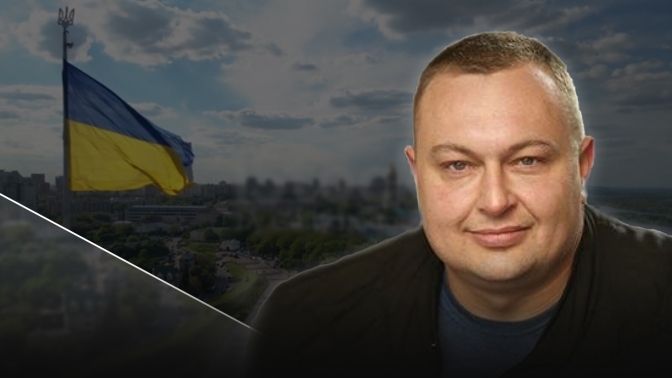
[For urgent updates please follow Ukrainian Freedom News on Telegram]
In which spheres have Ukrainians «grown up», where do they still need to learn and how to preserve the unity of the vision for Ukraine’s development after the victory? We spoke to a sociologist, the director of «Rating» sociological group, Oleksii Antypovych, in frames of our program «Accents of your city».
We really hope that this war changes us for the better, in the evolutionary way, when it’s possible to do the impossible – overcome, jump over entire periods. Putin started this war by declaring that Ukrainians do not exist as a nation. Can we now say for sure that the Ukrainian nation definitely exists, what is it like, and how do sociologists see it?
Putin talks a lot of nonsense. But I see one trend: he probably did more for Ukraine and for Ukrainians than 30 years of independence or any of our presidents. Why do I think so? Because just a year ago, only 8 out of 10 Ukrainians identified themselves primarily as citizens of Ukraine, today 10 out of 10. If in our country 3 out of 10 Ukrainians called themselves Europeans, then the current estimate is 6, almost 7. This is only one of the examples, which show that during the war, the Ukrainians became extremely united, and began to feel their commonality with the land on which they live. Ukrainians began to call this land their state and defend its independence.
All our war and our resistance are caused by the fact that we are defending our independence. Why should some orcs tell us how to live? We can love our government or not, we can quarrel among ourselves over language, traditions or recognition of the Soviet past, but these are our internal affairs. Since the beginning of the war, we have become united as citizens of Ukraine, and this is the most tangible breakthrough. The Ukrainians understood that this is their state, and there will be no another one – we don’t want another.
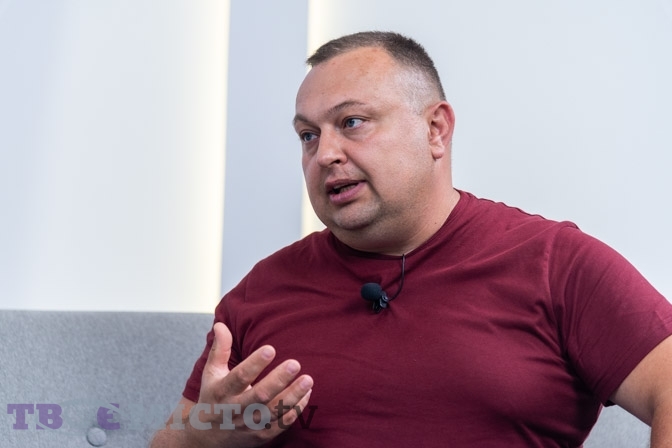
On the eve of the invasion, the feeling of danger hung in the air. I remember it was 40 days after the death of Misko Barbara [Lviv musician, frontman of the cult rock band «Mertvyi Piven»,] and I went to the concert «Tribute» in Kyiv. We sang the song «Kholodno» («Cold»), where Misko Barbara sang «so well we were going», and it evoked very common emotions. It seemed to me that we were thinking about the same thing. Sometimes, we really disliked this country, it annoyed us: with the second president Kuchma and his voters, with Yanukovych and his voters, sometimes with Zelenskyi and his voters, but we suddenly realized that we were doing well anyway.
I also watched this concert and completely agree with the assessment. Before the war, a year ago, the absolute majority of Ukrainians felt disappointed when thinking about Ukraine. Today, we feel hope and pride. Before the war, a year or two ago, every fifth person, up to 20%, felt ashamed when thinking about the state. Now, there is no such thing at all.
The perception of one’s own state has changed, and awareness has come. I cannot say whether it’s rational or irrational awareness, perhaps this is like a faith that is blind and cannot be explained, but without it, there is nothing to do. Even our belief in victory. On the eve of the war, we also measured «in your opinion, is Ukraine capable of fighting back against Russia if it attacks», and about 70% said that we would be able to fight back. Immediately after the start of the war, on the fourth day, we conducted another survey and received 90%. Today, it’s 93%.
Read also: We need a new version of our country. Former minister of economy about reforms
The Ukrainians just immediately accepted that we will fight and believe in our victory because without belief in victory, there is nothing to do in this war. The attitude towards the state has changed, as well as towards the very institution of the state. We conducted an almost scientific study at the request of one of our fellow sociologists, comparing pre-war and current data. We see that even the assessment of success in the past has increased: not everything was as bad in those times as we thought.
75% of Ukrainians, (in May it was 80%), now believe that the state is moving in the right direction. I am asked: what is the right direction? War, crisis, no fuel, people are dying! It’s not about a static assessment, but about the direction in which we are going. And we are moving in the right direction, because we are repelling the attack, defending our own independence and the future of our children in our state.
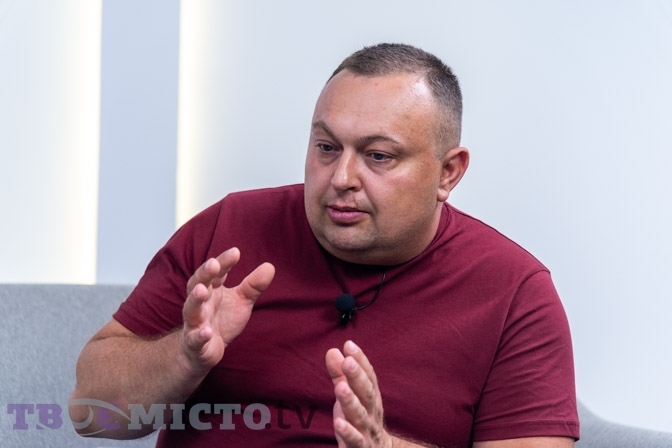
We can draw parallels between the war today and the Maidan. These historical events captured more and more people each time, and in the last revolution, about 10% were related to it. Today, everybody is related to the war. What does it mean?
As a sociologist, I stopped seeing differences between Ukrainians. A Ukrainian from Kharkiv and a Ukrainian from Lviv think about war in the same way. The Ukrainian of Odesa and Zhytomyr are the same. That is, young people, older people, women, men, different demographic groups, wealthy, poor – we have nothing to analyze in the answers of our respondents, they are united. There are no differences. This means that the Ukrainians have become one. And it doesn’t matter whether you live in the relatively safer Chernivtsi or Uzhhorod, or Kharkiv that is under the shelling.
You still perceive these sacrifices, the uncertainty of the future, in the same way. Undoubtedly, someone who lives or lived on the front line, lost his home, experiences more, but this is a degree of emotional perception. However, economically, with regard to the future of children we are all the same, we all have the same problem.
Before the war, in 2021, we conducted a survey and tried to paint a portrait of a Ukrainian: political views, value orientations. There are different regions, cities, villages, Russian-speaking, and Ukrainian-speaking, but 80% of all people said that independence is important. Ukrainians were ready to fight for independence, and this is something that Putin did not take into account. But here is an important question: when the war comes to an end and we defend our independence – what is it for?
Freedom is extremely important for Ukrainians. Regarding independence, there is also a question of definition: independence from 1991, the referendum, but freedom and liberty are the main characteristics of a Ukrainian. Even building a European society in our state, a Ukrainian already understands Europe not only as certain frameworks, but also the freedom that Ukrainians can bring to Europe.
Will we be able to preserve this unity in the vision of Ukraine?
I would divide the question into two components. After the war and victory, all Ukrainians will disperse to their homes and will rebuild it, earn money, teach children, and do everything we did before, only it will be more difficult, we will have to make efforts. Our collectivity is horizontal, we rally against the enemy, gather in small groups, and help ourselves. There will be a lot of advocacy of separate interests, and that is normal, but the Ukrainian will definitely have a vector and a goal for where we are going.
We will definitely never focus on Russia again. Russia is an enemy for 100% of Ukrainians. These estimates were obtained in February, March, April, May, June, the absolute majority of Ukrainians do not see the possibility of restoring normal relations with the Russians, it is more than 60% and this number just grows with each week of the war. And about 20% say that restoring the relations will take 20-30 years, and that is a generation. Therefore, we are talking about 80% of Ukrainians who do not see the possibility of restoring relations with the Russians.
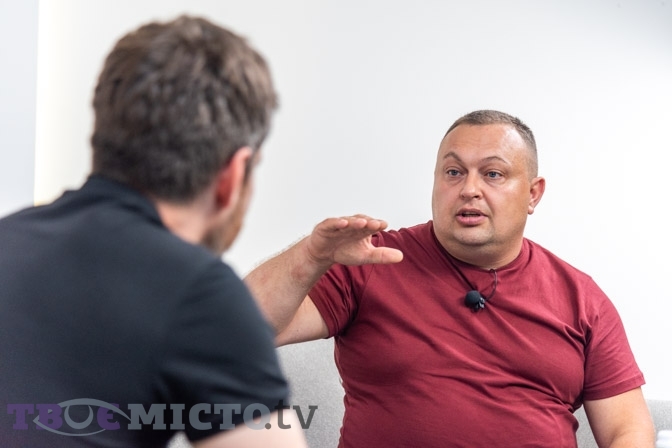
Read also: How Lviv helps refugees and the front. Interview with the Mayor
Accordingly, our goal and objectives are Europe. Before the war, we perceived it this way: «We want to live like in Europe», but this does not mean that we want to pay taxes like in Europe, obey laws, and not engage in corruption. No, we want just to live like in Europe. Our refugees have seen how Europe lives, they will bring good or better to their home, and on the other hand they will see that it was not so bad in our country. They will understand that we can simply live like Europeans, but for this we need to stay within the framework of laws, rules, strategies, goals, and not engage in Brownian movement.
I believe that as a state, we will have an incredible society of citizens that will stick together, protect interests, never surrender the state. But from the point of view of economic or labor interests, we will be divided. This will lead to political disputes, which we always had, but the possibilities of the government will be limited. Let’s remember how people dealt with looters in March: they tied them to pillars. This will surely be the case after the war.
Ukrainian economist Illia Neskhodovskyi said the phrase that if the request for a fair trial and justice is not ensured in the first peaceful days, then the Lynch trial will come.
Absolutely. It will be absolutely justified: many of our people have seen death, suffered torture, and losses, and they will have nothing to lose.
Ukrainians are very infantile by many markers, although this can certainly be said about the generation of the XXI century.
Our infantilism is a little different from that of the entire generation of the XXI century.
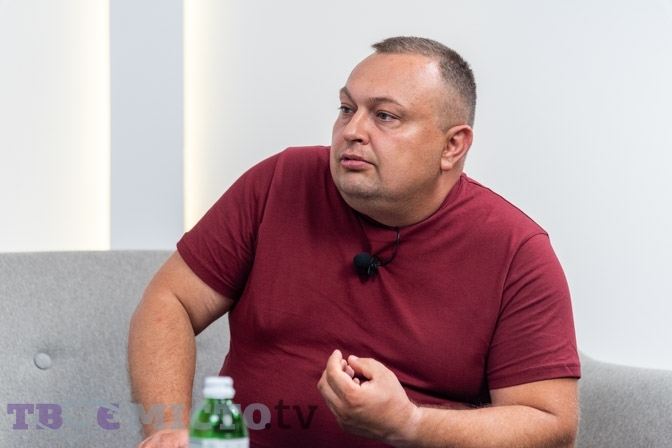
For me, there is a marker: the cryptocurrency mining bubble is just bursting right now because people have seen that this is not a world of pink unicorns, this is a world where World War III is possible. It was very popular in Ukraine: to make some money out of thin air. Are Ukrainians growing up now?
Definitely yes, but there are certain directions. We are maturing in our perception of ourselves as citizens, in our attitude towards the state, which in fact is not so much indebted to you as you are also indebted to it: with your protection, your body, and money. The majority of Ukrainians help in the victory: some volunteer, some financially, some in the Armed Forces, in informational resistance. And about 20% say that they can’t help in any way. It’s the older generation and women who raise the children.
Read also: When is Ukraine to launch a counteroffensive? Interview with a military expert
Everyone understands that politics is out of time, so despite different views on the war and rather critical assessments of Zelenskyi’s government, polemical assessments of the actions of the previous president and other parties people don’t argue on this topics. We need victory. One victory for all. We also grow up in this. Let’s see what happens next. We also definitely grow up thinking about energy saving, for example, fuel. When it disappeared, we all started thinking, why pay so much: we take trams, ride trains, buy electric cars. The state will undergo a crash course in saving energy even this winter.
Even the people in power who like to manage understand that sometimes you have to let the market go.
The government also learns quickly, by seven-mile steps, because they have a greater responsibility than an ordinary citizen, and this government will be overthrown if it makes mistakes. The government cannot make a mistake in war. The government has no right to «fail» the state on the economy, management, and corruption. The government learns and the citizen watch it. Now, you can’t be in opposition to the government. Even the Hundred Years’ War has ended, and this one will end too, with our victory.
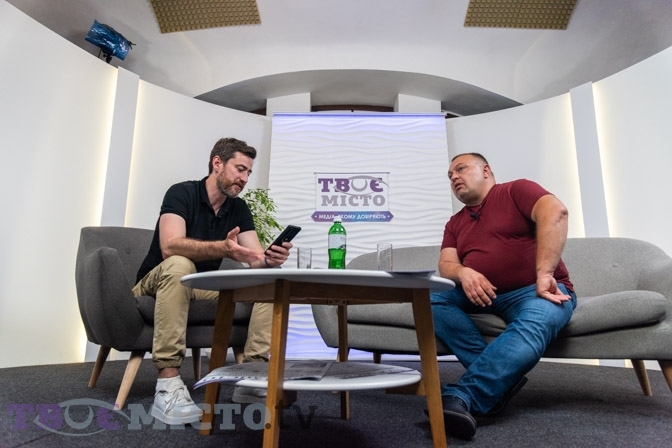
We now see 80% of Zelenskyi’s rating, does the temptation of authoritarianism arise then? Zelenskyi recently spoke at Stanford about the fact that sometimes undemocratic steps need to be taken.
The assessment of the threat of authoritarianism seems to like from another life. We have a war, there is a president who did not flee, who defends his country, and achieved incredible success with his speeches before the EU. His current sky-high ratings are normal, everyone here believes in the Armed Forces and in President Zelenskyi. Will it be an electoral indicator after the war? It will probably be to a large extent, but we cannot expect ratings of 90% in the elections. Elections are a kind of competition, they are those who want to come to power, some alternative, people who are not currently in the first roles because only the president can be in the first roles.
During the coronavirus, the level of respect for the government and the president increased because people expected the government to save them. People were looking for protection then, and now, they’re looking for even more. Our course in the EU and NATO is dictated by the fact that we seek protection. Ukrainians have now realized that no one will fight for us and our country except ourselves. The deaths are on us, we accept help, but we will defend the state ourselves. Joining NATO was supported by a quarter of Ukrainians, then half, then a little more than half, there were fluctuations, and now – almost 80%, EU – more than 90%. Moreover, there are also successes: we were given candidacy, the Ukrainians see the feedback and give their assessment that they want to join the EU.

90% of Ukrainians support the ban on pro-Russian parties. Among the residents of the East, in our research – Kharkiv, Donetsk and Luhansk regions, half support the ban of Russian songs on radio and television. In general, 80% of Ukrainians support it, in the East – 50%.
The best illustration of the change in regional differences, their absence now, is the attitude of Ukrainians to the ban on the St. George ribbon. We raised this issue 5 years ago. Dynamics in general: it was half-and-half, now almost 76% support the ban. And by regions: Western regions both supported the ban 5 years ago and still support it – almost 80%, residents of the Center doubled their support, residents of the South and East tripled their support, and now the assessment is completely equal – everyone supports the ban.
If you try to calculate the trend of where society will change next. We were talking about security values, but when we say that we left Russia, there is a question whether we are definitely going to Europe. In the end, it’s still a question of «to what extent are you the same as us». I mean, if we want to join the EU, then we understand that we are conditionally closer to Slovaks than to some conditional «good Russians». Do you feel that other values are also changing? Will Ukrainians become Europeans?
I am critical in this matter, because a Ukrainian will never become a German, a Pole – he can be close, and meet certain criteria or frameworks in which Germans, Spaniards, and Italians live. A Ukrainian can live like this, but he will still remain a Ukrainian. Ukrainians will always defend their independence and will not always be ready for very strict frameworks.
The Ukrainian perfectly assimilated into all societies and authorities to which he was put. Both in the Russian Empire, in Poland, on jobs in Poland, and on jobs in Russia, and anywhere. The fact that our path is not to Russia, that we are different from them, the Ukrainians have already understood. Whether there are good Russians or not is a rhetorical question. There probably is, because we have to believe in some kind of humanism. But the Ukrainians will definitely go to Europe, we always went there.
Read also: «Russia acts as a religious sect, or why we shouldn’t think about good Russians»
It is necessary to understand that the Ukrainians will not blindly follow the steps regarding the EU. We show that we even had and have our own weapons, and we are ready to produce them, we show that we can fight differently: not with vertical instructions, but with horizontal actions. These are only examples of war, and society works in the same way: in the economic sense, in some other things. Ukrainians will be independent, but regarding unity, I would like to recall the figures of attitudes towards European countries and leaders.
Before the war, Ukrainians were probably less interested in what was going on in Europe. In addition to the desire to live as in Europe, probably, not all of them knew the names of the presidents. They knew Lukashenko and Putin, but confused with names of EU leaders. Now, everyone knows Boris Johnson, Andjey Duda and others. There are smaller friends, there are bigger friends, this is understandable, but the fact that Ukrainians are already oriented in these issues means that we look towards EU much more than we even think. This social map tells me as a sociologist that the Ukrainian has already integrated into Europe.
I want to return to the issue of war. 90% of Ukrainians believe in victory, 80% want to return all territories together with Crimea at any price. What victory do Ukrainians see, and what victory are they ready to accept?
When the war started, we were constantly measured the issue of negotiations, and the Ukrainian was ready to stop this war, to reach some kind of peace agreement through negotiations. This is a normal answer: when you meet a hooligan on the street and there is an opportunity to come to an agreement and not fight, then a reasonable person will come to an agreement. But the further we get involved in the war, the less orientation towards the negotiation process there is in general.
With whom to negotiate: criminals, perverts, orcs, with a horde? What about? Our independence, which they plunder every God’s day with missiles? About the death of our people. A realistic victory is the restoration of our territorial integrity, with all the occupied territories and Crimea. This is an adequate answer of a Ukrainian, it is right. Another question is: how will the military operations develop, how well will we be armed. Of course, we will recapture the territories occupied by the orcs now, but now it requires a lot of effort: not in terms of time or material resources, but in terms of the lives of our people, and to restore further: Donetsk, Crimea, then even more. We can talk about evaluations later, because now it takes all the time to stop their attacks.
Andrii Saichuk spoke
The text was prepared by Kateryna Bortniak
Photo: Tvoe Misto/Ivan Stanislavskyi
Follow us on Facebook and Instagram. Lviv Now is an English-language website for Lviv, Ukraine’s «tech-friendly cultural hub.» It is produced by Tvoe Misto («Your City») media-hub, which also hosts regular problem-solving public forums to benefit the city and its people.












